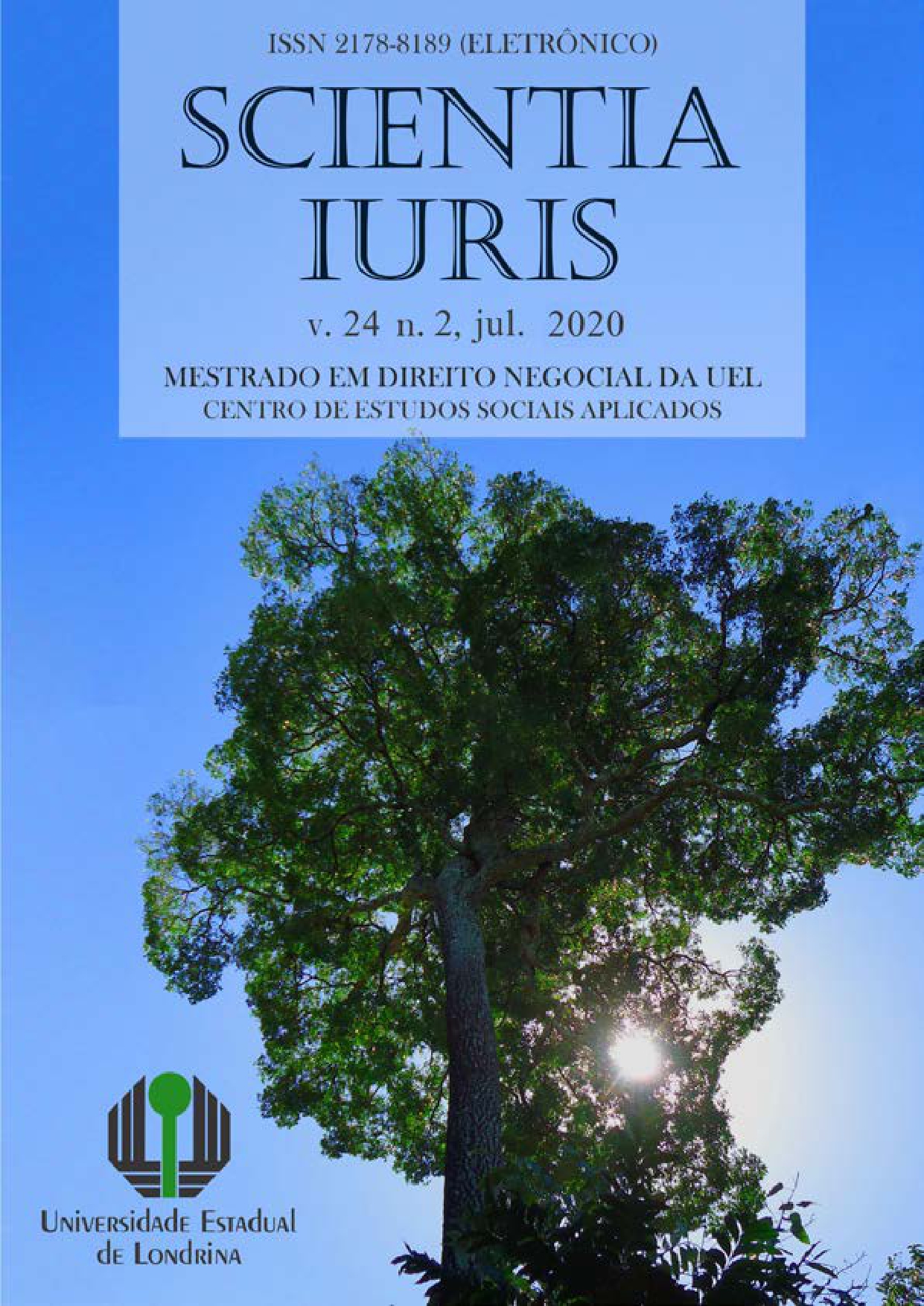Mediation as a public polict for resolving conflicts in consumer relations
DOI:
https://doi.org/10.5433/2178-8189.2020v24n2p49Keywords:
Mediation, Public policy, Conflict resolution, Consumer.Abstract
This paper addresses mediation as a public policy, examining communication as an important tool for conflict resolution in the area of consumer law. This study utilized bibliographic review with exploratory research and qualitative and quantitative approaches, such as public opinion research. Moreover, the target audience for the public opinion research project was made up of consumers in a municipality in the northwest region of the state of Rio Grande do Sul, Brazil. Furthermore, this study investigates important aspects of consumption, whilst exploring the role of communication as a pacific means of conflict resolution and analyzing its methods and concepts relevant to mediation. Finally, this study concluded that while mediation isn't popular throughout the country, it is growing a steady user base for conflict resolution. Additionally, interviewees who utilize mediation as a mechanism for resolving consumer disputes, grade it more positively than other instruments in satisfaction scores.Downloads
Download data is not yet available.
Downloads
Published
2020-07-31
How to Cite
Azevedo Canci Mafio, C. de, Martins, V. S., & Brasil Costa, V. (2020). Mediation as a public polict for resolving conflicts in consumer relations. Scientia Iuris, 24(2), 149–169. https://doi.org/10.5433/2178-8189.2020v24n2p49
Issue
Section
Artigos
License
Copyright (c) 2020 Scientia Iuris

This work is licensed under a Creative Commons Attribution 4.0 International License.
The journal reserves the right to modify, in the original text of the submitted article, normative, spelling and grammatical mistakes in order to maintain the cultured standard of language and the credibility of the journal. The journal will respect the authors' writing style. Changes, corrections or suggestions of conceptual order will be sent to the authors, when necessary. In such cases, the articles will be re-examined. The final exams will not be sent to the authors. The published works become the property of the journal, in other words, its total or partial reprinting is subject to the express authorization of the journal. In all subsequent citations, the original source of publication shall be cited and in the case of Photographic Speeches, shall be approved by the original author. The opinions expressed by the authors of the journal's articles are of their sole responsibility.

















